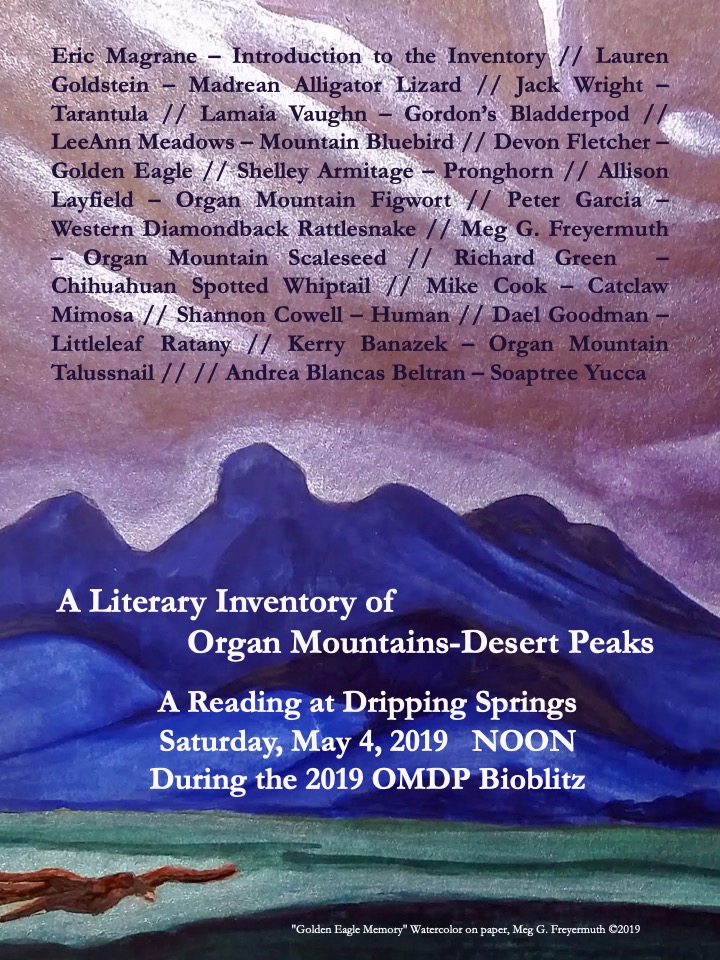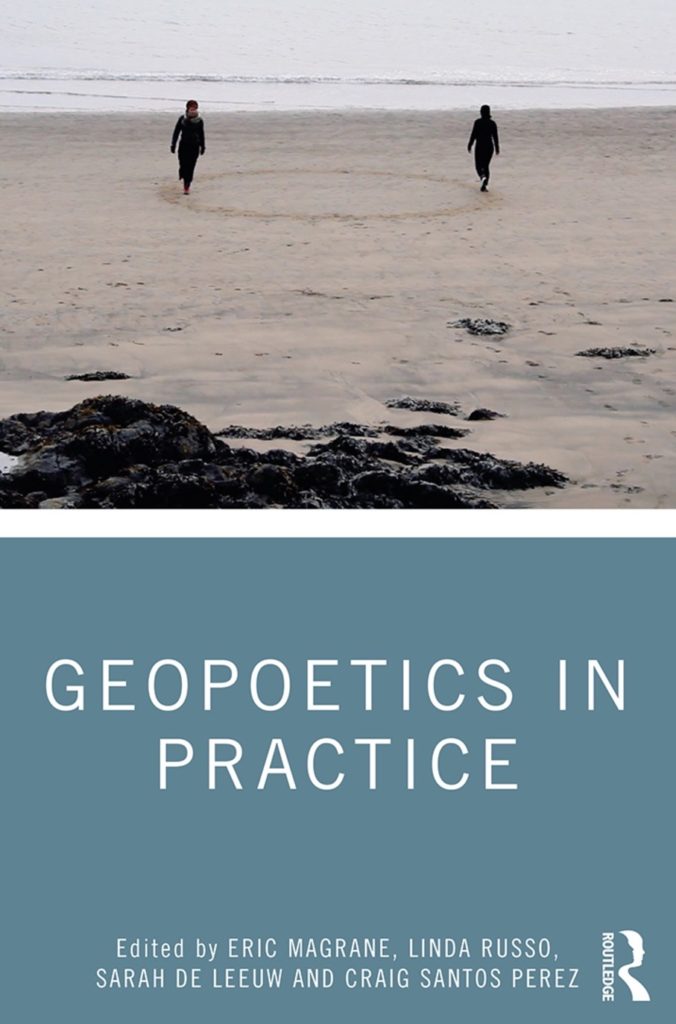Climate Poem at “Writing Out Of Time” blog
Thanks to Joseph Harrington, who featured a poem of mine in his Writing Out Of Time creative writing & climate chaos blog.
Climate Geopoetics article in Dialogues in Human Geography
The “online first” version of a new article, “Climate geopoetics (the earth is a composted poem)” is published in Dialogues in Human Geography. See the abstract and article here.
Geopoetics in Practice
Geopoetics in Practice is published! You can read more about the book, which is in the Routledge Research in Culture, Space, and Identity series, here.
Earth Matters: Connecting to Non-Humans in the Borderlands
I joined host Kevin Bixby and UTEP history doctoral candidate Ligia Arguilez on the radio show Earth Matters this week. Ligia is doing fascinating research on the creosote and its stories. You can listen to the full conversation here.
A poem in Carbon Copy: a new journal of climate science and the literary arts
The new journal Carbon Copy bills itself as “a journal at the intersection of climate science and the literary arts.” I’m grateful to have a poem in its inaugural issue. The poem is titled “In the Anthropocene, there can be no climate in the old sense; only weathercultures, with people acting as weatherculturalists.” The poem’s title is a direct quote from Mike Hulme, from his book Weathered: Cultures of Climate.
You can find the journal’s homepage here, and the poem here.
Literary Inventory of Organ Mountains-Desert Peaks
The “Literary Inventory of Organ Mountains-Desert Peaks” is now live in the fifteenth issue of Spiral Orb. It gathers more than fifty contributors who have written poems or prose addressed to species who live in the region of southern New Mexico in and around the new monument, which was established by President Obama in 2014.
To read the introduction to the inventory and the poems, visit Spiral Orb here.
Various Instructions
Thanks to Anna Lena Phillips Bell, editor of Ecotone, for reprinting “Various Instructions for the Practice of Poetic Field Research” in Ecotone’s Spring/Summer 2019 issue.
Anna Lena writes, “With this issue we debut a new department, Various Instructions, in which writers and artists will offer lists, prompts, formulas, how-to’s, and the like. We’re reprinting here the inspiration for it: Eric Magrane’s ‘Various Instructions for the Practice of Poetic Field Research.”
You can read “Various Instructions for the Practice of Poetic Field Research” here, and Anna Lena’s “Venerable Instructions,” where she introduces the new department of the journal, here.
Two for Antipode
Sarah de Leeuw and I wrote a chapter on geopoetics for Antipode’s new book Keywords in Radical Geography: Antipode at 50. The whole book is free to access and download here.
Also in Antipode: I recently reviewed the book Ecopoetics: Essays in the Field (University of Iowa Press, 2018), edited by Angela Hume and Gillian Osborne. The review is available here.
Applying the Geohumanities
My article “Applying the Geohumanities” has been published in the International Journal of Applied Geospatial Research. The article is part of a special issue on applied geography in academia, edited by my NMSU colleague Micheal DeMers.
Here is the abstract:
In recent years, geography has taken up a renewed engagement with humanities approaches to place, space, and environment. These approaches offer new possibilities for relevant, publicly engaged research and teaching; applying the geohumanities expands the techniques that geographers can employ to do engaged work in the face of great social and environmental challenges. This article describes two examples of applied geohumanities projects: a community course on climate change and poetry and a creative approach to a citizen science bioblitz. Building on these examples, four questions for future work in applied geohumanities are posed.
A Literary Inventory of Organ Mountains-Desert Peaks Reading May 4, 2019

